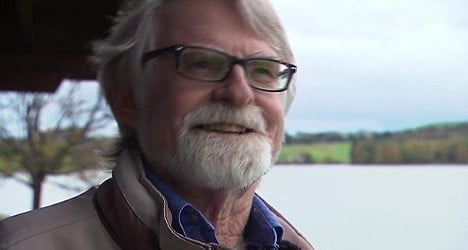Dunn, 76, told the Schweiz am Sonntag newspaper he was giving up making a second bid to apply for citizenship after learning he would have to pay a further 3,100 francs ($3,100) to regional authorities on top of 3,600 francs he already paid for an earlier application that was rejected.
The retired chemical engineering teacher and researcher at Zurich’s federal Institute of technology (ETH) has lived in Einsiedeln in the canton of Schwyz for 39 years and speaks fluent German.
But local officials in the autumn turned down his application to become a naturalized citizen, maintaining that he was not sufficiently integrated, despite having raised three children in the village with his English teacher German wife.
In October, Dunn told The Local he was hoping for a second chance with the authorities who rejected his application on the grounds that he did not know the local area well enough and didn’t have friends in Einsiedeln.
But he said he expected to get more of a break on the application fees than the 500-franc reduction offered by district officials.
“I think some local politicians do not consider it desirable that I become a citizen of Einsiedeln,” Dunn is quoted as saying by Schweiz am Sonntag.
He said he felt unfairly treated but he told the Sunday newspaper: “I will make no new application”.
In his first application, among the many questions he was asked, Dunn had to name the number of lakes in the canton of Schwyz, the largest employer in Einsiedeln and the name of holidays held only in Einsiedeln.
Dunn’s case has drawn nationwide media attention and has underscored the difficulties many longtime expat residents in Switzerland have in becoming citizens.
The process varies from canton to canton, but involves approvals at federal, cantonal and municipal levels.



 Please whitelist us to continue reading.
Please whitelist us to continue reading.
Member comments